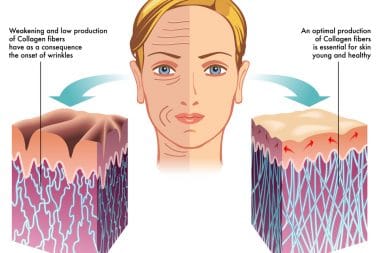Aging is a significant and inevitable transition, and when it happens, you get the privilege to care for your parents. It might be challenging if you have a busy schedule, but the satisfaction you get watching them age gracefully under your care is unmatched. In this article, we’ll discuss caregiving tips for your aging loved ones.
1. Enhance Home Safety
Take care of any safety hazards that may cause your parents to trip, fall, or cause any other danger. Some of the fixes you can do include clearing all floors and pathways of clutter, rugs, and cords, adding grab bars in the bathroom and beside the toilet and installing stair rails and stairlifts to ease movement.
You can also use technological devices like medical alert systems to help when in urgent need like falls and medical emergencies that can happen when your aging parents are alone at home. They give peace of mind to the seniors knowing that they can get help whenever the need arises, and to you, knowing that you can monitor your parents and offer assistance in case of an emergency.
Medical alert systems features include standard help at the push of a button, exclusively made for seniors, mobile locating devices (GPS), mobile service, the range for non-mobile help, two-way voice communication, waterproof buttons, automatic notification if the device needs service, and fall detection. Check out https://www.lifeline.ca/en/best-medical-alert-systems/ for the best medical alert systems.
2. Understand Your Parents Needs
You cannot offer effective care if you don’t know what your aging parents need. Understanding their needs helps you to effectively plan your time and resources. Make sure you understand what they need in these aspects:
- Home safety
- Medical needs
- Cognitive health
- Family support
- Mobility
- Personal hygiene
- Social interaction
- Meal preparation
Please note how much support they are already getting and how much more they need in each category. If need be, get a caregiving notebook to write down what you think is necessary.
3. Living Arrangements
To ensure the well-being of your aging parents, look into where and how they will live. Is it alone, with you, with your siblings, or with your relatives? You also need to consider where they would like to live. Here are some living arrangements you can consider:
- At home: Most seniors like to age in their homes, so doing the necessary modifications to suit their needs will ensure that they’re safe from falls or avoidable accidents. Also, get a home caregiver or a relative to look after them.
- Independent living communities: They are ideal for active, independent seniors who can buy or rent a home, apartment, or mobile home with other seniors. Everything is provided for them except medical care.
- Assisted living communities are suitable for seniors who are slightly independent and may soon need assistance
- Nursing homes are ideal for the elderlies who need medical surveillance and caregiving. Nursing services are provided 24/7
- Living with family and relatives is ideal for seniors who need non-skilled care and assistance with daily chores
If you’re unable to live with your parents or hire an in-house caregiver, choose a living community that best suits them.
4. Care for Your Own Physical Needs
Caregiving can be overwhelming, and you cannot care for your parents if you’re unwell. Eat well, rest, exercise and don’t miss any doctor’s appointments because you’re busy looking after your parents. Be at your best to give your parents the best. You may also suffer caregiver burnout, which is emotional, mental, and physical exhaustion that may adversely affect health.
5. Seek Financial Assistance
With all the home modifications, health care, and other needs that come with aging, finances may take a toll on you. Ask for assistance if necessary. Check out government programs for seniors that assist, such as housing, medical and health, food and nutrition, employment and income, and other aid sources.
If your parents have their savings and retirement benefits, step in and help them manage their finances well to ensure that they don’t suffer in the future. In addition, beware of the federal assistance you are eligible for as a caregiver, including tax relief.
6. Help Them Lead a Healthy Lifestyle
Maintaining good health and body function helps seniors live longer and happier. They can do so by changing their diet, participating in physical activities, and going for regular checkups to help detect any underlying conditions and begin treatment before it’s too late.
Focusing on their diet and eating healthy foods that include fruits and vegetables will help their bodies fight against infections and keep lifestyle diseases at bay. Physical activity helps the seniors be in control of their body weight, helping to prevent falls, boost metabolism and help with diseases such as diabetes, high blood pressure, and arthritis. It also helps keep the heart healthy.
Endnote
Helping your parents age with dignity should be a priority. Let them have their independence for as long as possible and involve them in every decision that concerns them. These tips will help you give the best care for your aging parents.








Reply